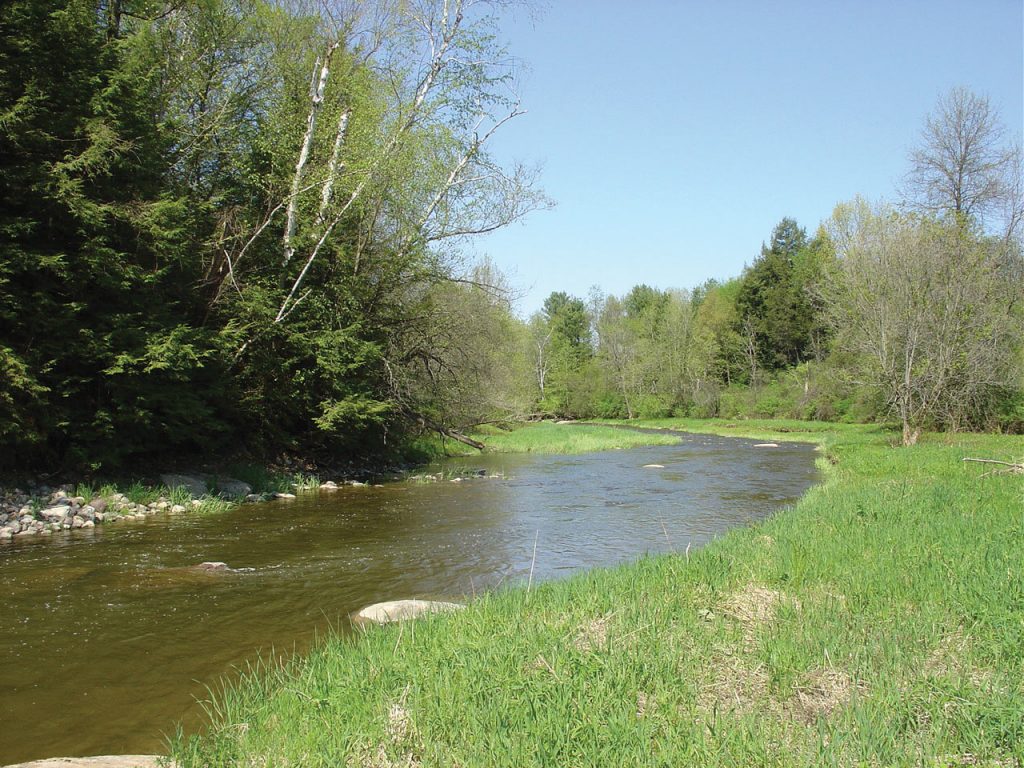
Have you always thought that science class meant long hours in a classroom or in the lab?
Well, not for Mary Rutenbeck and Mari Caminiti, Advanced Placement (AP) Biology students at Champlain Valley Union High School (CVU). Thanks to a partnership with the Vermont Experimental Program to Stimulate Competitive Research (EPSCoR), CVU, and Nicole Gorman, their AP Biology Teacher, science is real…and it’s also making a real difference to both students—and to the water quality of Lake Champlain.
The students chose to study the habitat of the endangered Stonecat fish and conduct ecological research at the Lake Champlain Land Trust’s Upper La Platte River Natural Area in Shelburne, Vermont.
They began by collecting data in July and returned every three weeks until November. They measured the water temperature, collected insects and pH samples, and sent water samples to Saint Michael’s College for evaluation.
The findings indicate there is a robust insect population to help support a healthy population of the endangered Stonecat. But there are also high phosphorous levels in the water, the main threat to the health of the La Platte River and Lake Champlain itself.
Thanks to these students, the Lake Champlain Land Trust can use this baseline data to calculate the difference our long-term river restoration is having on the water quality of Lake Champlain.
“This was a great opportunity for the students to take their learning outside of the classroom and apply it in a real life setting. The Lake Champlain Land Trust’s Upper La Platte River Natural Area is perfect for field work.” -Nicole Gorman, CVU Biology Teacher
Would you like to help out? For more information about volunteering with the Lake Champlain Land Trust, visit our volunteer webpage.

